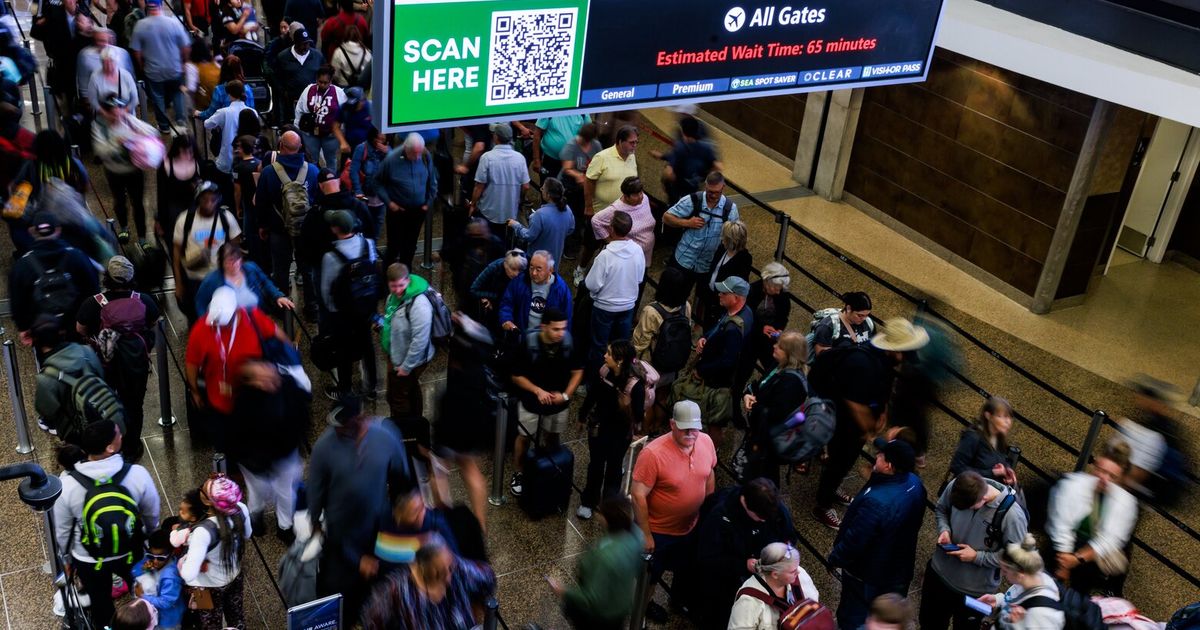Congress passed a $105 billion bill Wednesday reauthorizing the Federal Aviation Administration, a must-pass piece of legislation that funds the agency overseeing air travel in the United States.
Within the 1,000-plus-page bill are several updates to rules governing air travel and aviation that will have direct impacts on aerospace companies like Boeing and the millions of passengers who travel through U.S. airports each day.
Sen. Maria Cantwell, D-Wash., said the bill delivers “big wins” for Americans. Cantwell, chair of the Senate commerce committee, was one of the lead negotiators on the bill, along with U.S. Rep. Rick Larsen, D-Everett, ranking member of the House Transportation and Infrastructure Committee. They were joined by Republican counterparts Sen. Ted Cruz, R-Texas, and U.S. Rep. Sam Graves, R-Mo.
Here’s what’s changing, and not changing, under the FAA reauthorization bill:
Refunds: Passengers are entitled to a refund if their flight is canceled or delayed — three hours for a domestic flight or six for an international flight — and they choose not to rebook or accept travel credits. Under the reauthorization bill, airlines will automatically issue the refunds. This codifies Department of Transportation regulation on refunds announced last month. Families who sit together on a flight won’t be charged fees to do so.
Boeing 767 freighters extension at Everett plant: The bill includes a provision that would grant Boeing five additional years to continue building 767 freighters at its Everett plant. Boeing had been expected to phase out the plane in 2027 because it doesn’t comply with international emissions rules. Boeing can build the cargo carriers until 2033 under the provision, which was first reported by The Air Current.
Air traffic controller shortage: The FAA is required to improve its staffing standards and set targets for hiring to address a shortage of air traffic controllers. The FAA had 13,865 controllers in 2023 and wants to hire approximately 3,000 more. In Washington state, air traffic control centers are approximately 88 controllers short — towers are about 75% staffed, according to Cantwell’s office.
Updated recording devices: All commercial planes will be required to have recording devices in the cockpit that can store 25 hours of audio instead of current devices that only record for two hours. Lawmakers repeatedly cited the Alaska Airlines flight in January where a panel blew out as the flight climbed out of Portland as one reason for the updated recording device. In that instance, the cockpit recording in the moments after the blowout was overwritten.
Accessibility: The reauthorization requires the FAA to look into whether it’s economically and financially feasible to have seating arrangements on planes that accommodate passengers with wheelchairs in the main cabin. It also includes a provision that the FAA improve its evacuation standards — the current standards require that all passengers be able to evacuate within 90 seconds, but lawmakers argue that testing doesn’t take into account full flights or passengers with disabilities. The Muscular Dystrophy Association called the bill the most significant improvement in air travel for people living with disabilities in nearly 40 years.
“The FAA reauthorization is an important step to creating an equitable, safe, and dignified travel experience for people with neuromuscular and related disabilities,” MDA President and CEO Donald S. Wood said in a news release.
Research, workforce development and education programs: The reauthorization bill continues the operations of the FAA’s Centers of Excellence program, which provides training and research through partnerships with schools including the University of Washington and Washington State University. The bill increases funding to $60 million per year for grants to recruit and grow the aviation workforce; $12 million will be dedicated to an aviation education program to recruit and keep members of underrepresented communities within the aviation industry.
Reagan National Airport slots: One of the most hotly debated issues over months of negotiations had nothing to do with safety oversight or consumer protections. Instead, lawmakers fought over whether to add additional long-haul flights at the primarily short-haul Reagan National Airport outside Washington, D.C. Lawmakers who opposed the change said their colleagues were sacrificing safety to add direct flights to their home states. Alaska Airlines already operates a flight to Reagan from Seattle, so it’s unlikely any of those slots would go to another Seattle flight.







:max_bytes(150000):strip_icc()/roundup-writereditor-loved-deals-tout-f5de51f85de145b2b1eb99cdb7b6cb84.jpg)



